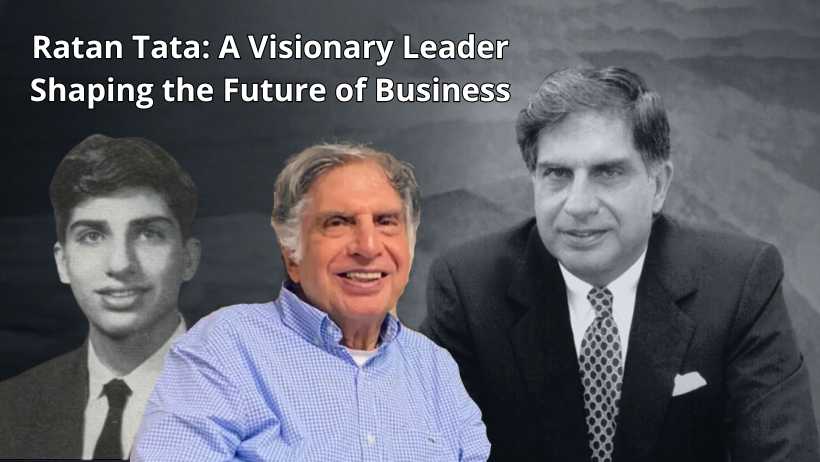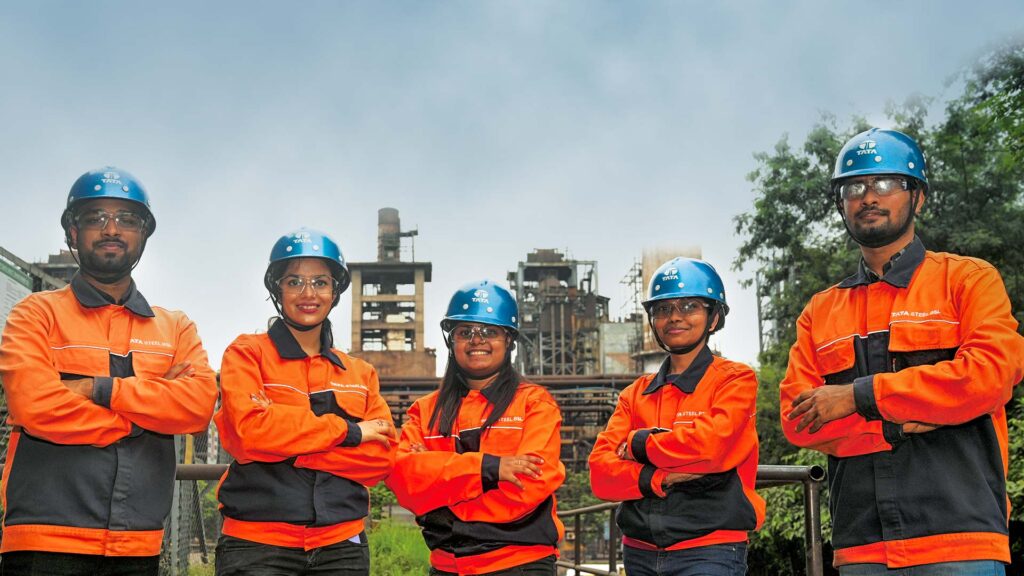Lessons for Global Business Leaders
Tata Group’s exemplary approach to employee management has positioned it as a beacon of leadership in the corporate world. With over 935,000 employees across multiple industries, Tata Group is the third-largest employer in India, following the Indian Railways and the Indian Armed Forces. This case study unpacks the strategies that allow Tata to effectively manage such a massive workforce while maintaining a reputation for fairness, loyalty, and community-building.
Designed for B-school students and business executives, this analysis goes beyond traditional corporate strategies, diving deep into Tata’s culture of employee welfare, leadership development, and corporate social responsibility (CSR).

Operations: Prioritizing People Over Profit
The Tata Group has built a legacy on its employee-first approach, dating back to its founder, Jamsetji Tata. As early as 1887, Tata was providing benefits like pension and gratuity, unheard of at the time, even globally.
The Case of Empress Mills (1887): Tata implemented sanitized living quarters, clean drinking water, and subsidized food for workers, even at the cost of short-term profits.
Early Retirement Benefits: Tata introduced provident funds and retirement plans long before they were legally mandated, underscoring the company’s focus on long-term employee welfare.
These principles laid the foundation for Tata’s operational strategy, which values sustainable growth over short-term profitability. Tata’s ability to retain talent across generations—families have worked with Tata for three generations in some cases—speaks to the effectiveness of its employee-first policies.
Brand Management: The Human-Centric Brand
In an era dominated by profit-maximizing corporations, Tata stands out for its commitment to humanity. By focusing on the well-being of not only its employees but also the larger community, Tata has cultivated a brand synonymous with ethics and responsibility.
- Jamshedpur (The Tata Town): Tata Steel’s Jamshedpur is a prime example of how Tata builds communities around its businesses. The town has facilities like schools, hospitals, and parks, reinforcing Tata’s belief that businesses should contribute to societal development, not just economic gain.

Leadership Development: Tata’s Answer to Talent Management
The Tata Administrative Service (TAS) was introduced by JRD Tata to groom future leaders. The TAS functions like the Indian Administrative Services (IAS), identifying talented individuals early in their careers and training them for leadership roles within the group.
- Meritocracy at Scale: Every year, 1,500 employees apply for TAS, with only 25-35 being selected. This internal management pipeline ensures that Tata always has a pool of highly-trained, leadership-ready employees who understand the company’s values and vision.
2. Innovation in Hiring, Training, and Development
Operations: Broadening the Talent Pool
One of the most innovative aspects of Tata’s hiring strategy is its focus on local talent development. Tata does not just hire from top urban centers like Bengaluru or Mumbai. Instead, it extends its hiring outreach to rural and underdeveloped areas, ensuring that it gives back to the local communities where it operates.
- Titan’s Local Hiring in Tamil Nadu: When Titan set up a plant in Hosur, Tamil Nadu, Tata didn’t just import talent from cities. It actively trained and hired 400 local youth from rural villages, providing them with technical skills, and thus, ensuring local economic growth.
Marketing and Community Engagement: Building a Legacy from the Ground Up
Tata’s recruitment approach is as much about branding as it is about community development. By investing in local populations, Tata fosters an emotional connection with communities, which in turn strengthens its brand equity.
- Rural Outreach Programs in TCS: Tata Consultancy Services (TCS), the technology arm of the group, hires from rural and underserved areas like Assam and Meghalaya. TCS trains these employees extensively, giving them the skills needed to succeed in the tech industry, and broadening the company’s talent base.
Training Programs: World-Class Development for All Levels
Tata’s Tata Management Training Centre (TMTC) is not just for senior executives but extends to junior and mid-level employees, ensuring a continuous learning culture. The TMTC is so respected that even government organizations have sent their officials for training at Tata’s institute.
- 100+ Programs Per Year: The center runs over 100 different leadership and skill development programs each year, ensuring that employees at every level can grow and adapt to the evolving demands of the business world.

3. Financial Management: A Commitment to Fair Compensation
Finance: Employee Compensation Even in Losses
Tata Group has been known to increase employee salaries even when the company is facing losses. This is almost unheard of in today’s corporate environment, where cost-cutting during downturns is standard practice.
- Tata Chemicals (1991): Despite operating at a loss for 12 years, Tata Chemicals continued to provide salary increments to its employees. The leadership, including JRD Tata, believed that employee well-being was more critical than immediate financial recovery. This long-term investment in employees paid off when Tata Chemicals’ profits increased 20-fold over the next two decades.
Operations: Employee Ownership in the Tata Tea Gardens
One of Tata’s boldest decisions was to sell a part of its tea plantation business to its employees when it was no longer profitable. Instead of selling the business to a third party or shutting it down, Tata empowered its employees to become co-owners.
- Kanan Devan Hills Plantations: Tata transferred 68% of the shares in its tea plantations to its 13,000 employees, turning them from wage earners into shareholders. This employee ownership model not only saved jobs but also incentivized employees to work towards the company’s success.
4. Resilience in Crisis: How Tata Handles Adversity
Brand Management: Going Above and Beyond in Crisis Management
Tata’s dedication to its employees was evident during crises like the 2008 Mumbai terrorist attacks, where the company’s Taj Hotel was targeted. Tata not only provided financial support to the families of employees and guests who lost their lives, but it also ensured that no employee was laid off during the 21-day closure of the hotel.
- Mumbai Terror Attacks Response: Ratan Tata personally ensured that the families of the victims were compensated fully, and re-employed the kin of deceased employees. This crisis management approach solidified Tata’s image as a company that values human life over profits.
Conclusion
Tata’s approach to employee welfare, leadership development, and corporate social responsibility sets it apart in the business world. Its unique blend of community engagement, employee empowerment, and ethical leadership offers valuable lessons for businesses globally. In a corporate landscape that often prioritizes profit over people, Tata stands as a beacon of responsible capitalism.
Business leaders and MBA students alike can learn from Tata’s long-term vision of sustainable growth, which is deeply intertwined with its commitment to social equity and employee welfare.
Leave a Reply